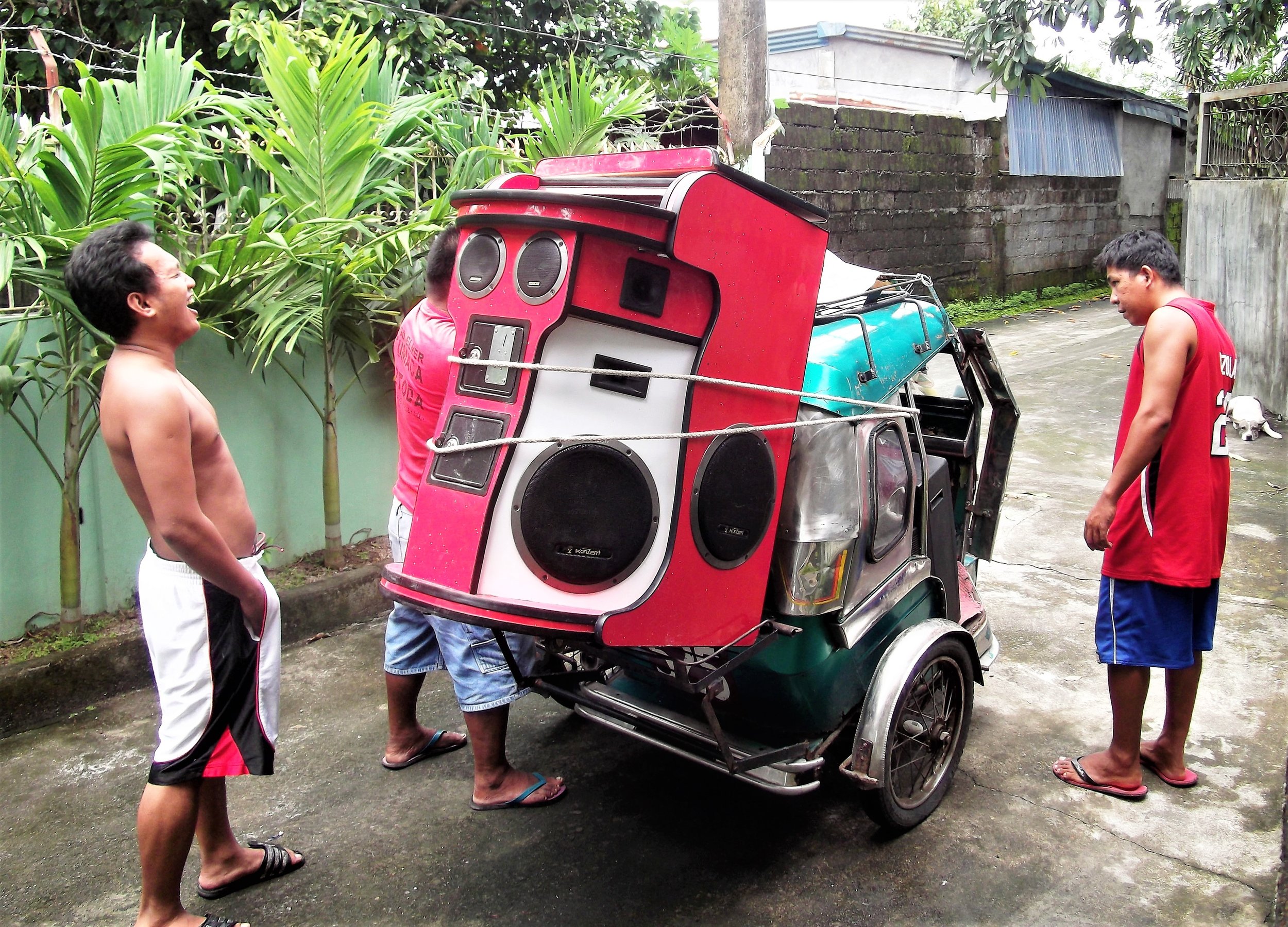Singing in The Philippines
by B.J. Stolbov
Our human voice is an amazing gift. With it, we can talk, shout, yell, call out, warn, howl, hum, hoot, holler, cheer, jeer, whistle, whisper, laugh, giggle, cry, sob . . . and sing.
When I lived in the United States, I almost never sang. Singing, especially my singing, was not expected or encouraged. Even at sporting events, for me, The Star-Spangled Banner is almost impossible for me to sing, and few people, including me, sing it. Singing was always something to be watched, a spectator sport, done only by professional singers – Frank Sinatra, Barbra Streisand – not by mere amateurs. Ordinary people do not just sing, especially spontaneously, whenever and wherever, for no reason.
In the Philippines, everyone I know sings, including me. Singing is expected and encouraged. You don’t have to be Paul McCartney or Beyoncé, you just have to sing. My singing voice, to be honest, is somewhere between Bob Dylan’s on a bad night and a swamp frog on a lonely night. After a beer or two, I am a little better. After a few more beers, or a glass or two of local brandy, I am much much worse. The Filipinos are extraordinarily non-judgmental about singing, except if you don’t sing. Then they will look sad, or hurt, or will pout, and they will persist and persist, until you sing something.
Karaoke culture reigns supreme in the Philippines. Every event seems to have a karaoke machine. [A karaoke machine plays the melody of a song while showing the lyrics on a screen, and people take turns singing the songs.] Every bar and most restaurants have a karaoke machine. Many homes have their own karaoke machine. Family and friends gather around it as though it offered the warmth of a fireplace on a cold winter’s evening.
A karaoke machine on a trike.
One of the great surprises of singing karaoke is actually seeing the lyrics of songs I thought I knew. For instance, I didn’t know that the up-tempo disco songs of the Bee Gees were so sad and depressing (“Tragedy, when the feeling’s gone and you can’t go on”) or that the rhythmic catchy pop songs of Madonna had such intelligent lyrics (“Life is a mystery, everyone must stand alone”).
One of the other surprises of karaoke is hearing old songs, songs I remember but have not heard in a long time, and now I get to sing them again, even though the songs may not be as I remembered them. I must have listened to Led Zeppelin’s Stairway to Heaven hundreds of times. But now as I’m singing it, I have no idea what these lyrics mean (“And it’s whispered that soon, if we all call the tune, then the piper will lead us to reason”).
My favorite karaoke tunes are Bob Dylan’s The Times They Are A-Changin’ (“Come gather ‘round people”) and Blowin’ in the Wind (“The answer, my friend”). These are not difficult songs to sing, but they do require honest and sincere singing. These great old songs are clear, direct, and still relevant.
Of course, karaoke can be sung in any language. My favorite Filipino song is Ewan (I Don’t Know). The lyrics start “Hindi ko alam kung bakit ka ganyan” (“I don’t know why you are like that”), which were written and sung by the Apo Hiking Society, and yes that is really the group’s name. Ewan is one of the most popular songs in the Philippines and a great wistful love song.
In the Philippines, singing is a participatory activity. Professional singers on stage will often find that the audience knows all the lyrics and is singing along. Filipinos will sing, for any reason or no reason, while driving, walking, cooking, cleaning, washing clothes, and, of course, showering.
A group singalong.
Singing is expected and encouraged at public events. A christening, a birthday party, a wedding celebration, a welcome-home party, a going-away party, even a government meeting is not complete without singing.
Politicians often sing at their rallies, and their supporters usually know the words and sing along to specially composed campaign songs. The President of the Philippine Senate, Tito Sotto, is a former, and still occasionally, professional singer. Even the President of the Philippines, Rodrigo Duterte, is known to unexpectedly break out in singing.
Teachers at recess, and sometimes in class, are often singing. Students know all the words and sing the latest pop songs. Policemen, directing traffic, can be heard singing. Janitors and gardeners, farmers and factory workers, bus drivers and taxi drivers, shop owners and street vendors, salespeople and check-out clerks, all sing.
Nurses sing in the hospitals. I’ve not had a surgery in the Philippines, but I wouldn’t be surprised to hear singing in the operating room. I know I’ve heard singing in the babies’ nursery room. Singing starts early in the Philippines.
Lupang Hinirang (My Beloved Country, the Philippine National Anthem) is more melodic and much easier for me to sing than The Star-Spangled Banner. Everyone knows it and it’s sung often. In addition, every province, and almost every city and town, has its own anthem. Schools, from university to elementary, have their own anthems. Every school event has at least one intermission number with student singers. Singing is taught in MAPEH (Music, Art, Physical Education, and Health) class from elementary through high school. And at graduation, good singers are acknowledged and honored.
On Sundays, singing fills the churches. Singing doesn’t have to be flawless, only heartfelt. I remember a beautiful old woman singing, The Old Rugged Cross (“On a hill far away stood an old rugged cross”) without a microphone, unaccompanied, and with not a dry eye in the place.
One of my most unforgettable memories is being asked to sing along with my uncle-in-law on his favorite song, For The Good Times (“Don’t look so sad, I know it’s over”). His normally deep rich voice was thin and frail, only days before he died of cancer. It is a high honor here to be asked to sing-along with someone.
You don’t have to be a great singer, or even a good singer. Singing can be in-tune or out-of-tune, or both, sometimes in the same song, or in the same line. It doesn’t matter. It’s the attempt that matters. Filipinos love loud, full-throated, whole-hearted, passionate, and enthusiastic singing. And they will love you for trying.
When you come to the Philippines, be sure to bring your voice. Singing in the Philippines doesn’t require perfection, only participation, and a willingness to let go of ego and pride and shame and embarrassment, and to join in and experience the pure uninhibited joy of singing.
B.J Stolbov lives and farms in Northern Luzon in the Philippines. His singing is encouraged and endured by his tolerant family and friends, and, less so, by his dogs, who cover the ears, howl along, or slink away. The trees and plants don’t seem to mind his singing.





